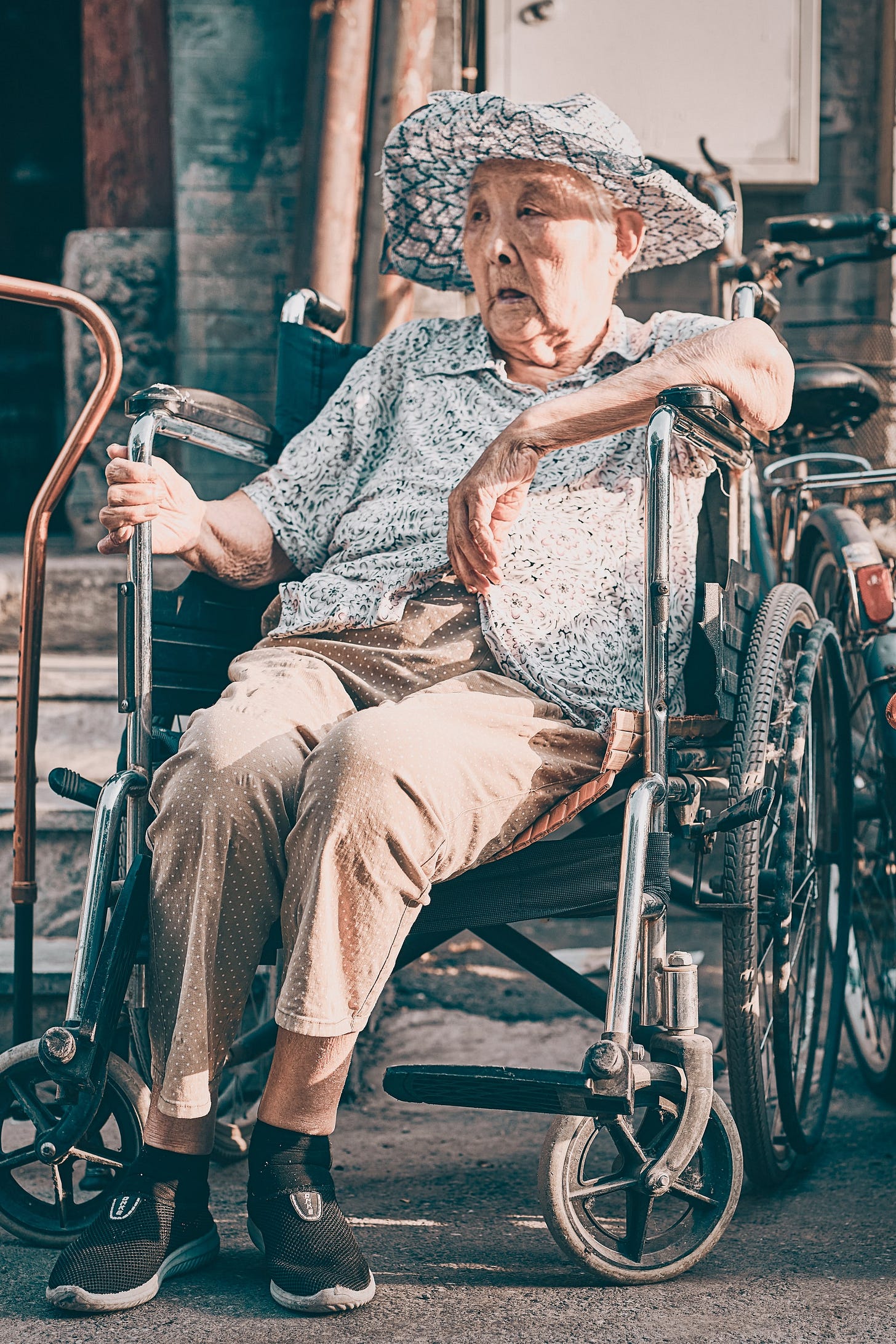Photo by zhang kaiyv on Unsplash
My wife and I had dinner last week with another couple our age, and in the course of the conversation our male friend, a corporate lawyer, informed us that he had purchased hearing aids. He showed us – proudly – that they were virtually impossible to detect. “If people at work could see I was wearing a hearing aid,” he explained, “I would be finished.”
My friend paid a premium price for his invisible aids. I don’t question his decision; the bias against old people is strong, and in the corporate jungle, displaying any sign of weakness is an invitation to be eaten for breakfast. But his story also illustrates just how pervasive ageism is in our culture.
If negative attitudes about old people were only responsible for costing us thousands of dollars in hair coloring, cosmetic surgery, hair plugs, exercise classes, and other efforts to appear younger than we are, that would be one thing. But it’s worse than that. Our society’s embrace of youthfulness and its abrupt dismissal of elders damages our health, and even shortens our lives. Ageism is killing us.
The Mind-Body Connection
Most of what we know about ageism and its impacts is due to the research of Dr. Becca Levy, a professor of public health and psychology at Yale University. For 25 years she and her colleagues have published a stream of research studies that document the fact that our beliefs about aging can become self-fulfilling prophecies.
Levy created the Stereotype Embodiment Theory to explain her research findings. Essentially, it posits that people absorb stereotypes about age from the surrounding culture early in life; then, as they age, people internalize these cultural beliefs to “self-stereotype” themselves, and believing these self-stereotypes, on both conscious and unconscious levels, has impacts on a person’s health.
In other words, if you accept the negative beliefs about age, then those beliefs will have negative consequences for your health. What you think mentally influences you physically.
(Levy’s theory about stereotypes also may be a useful model for explaining health disparities among other groups that suffer from negative stereotypes, such as African-Americans and women.)
Just the Facts
Theory aside, the evidence uncovered by Levy, and others who follow the trail she blazed, speak volumes:
· Older adults who have positive self-perceptions of aging lived 7.5 years longer than adults with negative self-perceptions.
· Adults who viewed aging as a time of continuous learning and development had fewer physical illnesses over the next six years than adults who saw age as a time of physical losses.
· Adults with positive perceptions could perform more functions of daily living – household chores, climbing stairs, etc. – three years later than those with negative views.
· Adults with positive outlooks on aging had better self-reported health and satisfaction six years later; those with negative outlooks reported increased depression.
· Decades after adults were surveyed about their attitudes, those with negative stereotypes of aging showed more signs of Alzheimer’s Disease risk factors when their brains were examined.
· Negative perceptions of aging were linked to a decline in walking speed two years later.
· Adults with negative views about normal aging were more likely to have cardiovascular disease later in life – independent of variables such as obesity, depression, education level, family medical history, blood pressure, cholesterol, smoking or marital status.
The Good News
Now for the good news: your own attitude is something you can change. If you reject the negative stereotypes about aging, even late in life, your health outcomes are likely to improve. In that study of cardiovascular disease, for example, when study participants became more optimistic about aging, their risk of disease decreased.
A more difficult problem is how to fight back against ageism in a culture that worships youth, identifies worth with work, and views old age as non-stop mental and physical decline. Some of the better suggestions:
· Increase meaningful, sustained contacts between older and younger generations. Prejudice against older adults begins in childhood. Children and teens who have good relationships with elders are less likely to accept ageist stereotypes.
· Encourage elders to try challenging physical activities. Physicians and other health care professionals who recommend only low-intensity activities, based on a patient’s age alone, are not doing the patients any favors when it comes to preventing cardiovascular problems.
· Educate health professionals to recognize ageism and fight it. When we, as patients, are more aware of ageism, we can push back on medical providers, challenging ageist assumptions and policies.
Or maybe we can storm the barricades, just like in the good old days. (More on that in a future newsletter.)





Wonderful words, Don. I agree with all of them. As I get older, I'm going with the Mexican take on aging: the older we are, the wiser, and more treasured we are. In my husband's culture, there's a lot more interaction between the generations, and respect and reverence for the aging population.
(I'm a little late responding, since I just found this issue buried in my email.)
When I was a student at LSU, I'll never forget meeting the widowed, septuagenarian mother of a classmate, Jeff Curtis. All of our circle of friends LOVED Mrs. Curtis. She was sharp, lively, fun...not to mention she invited us for dinner occasionally.
We all came away from her agreeing "We're not worried about getting old if we can be like her!" She was an inspiration for us all.